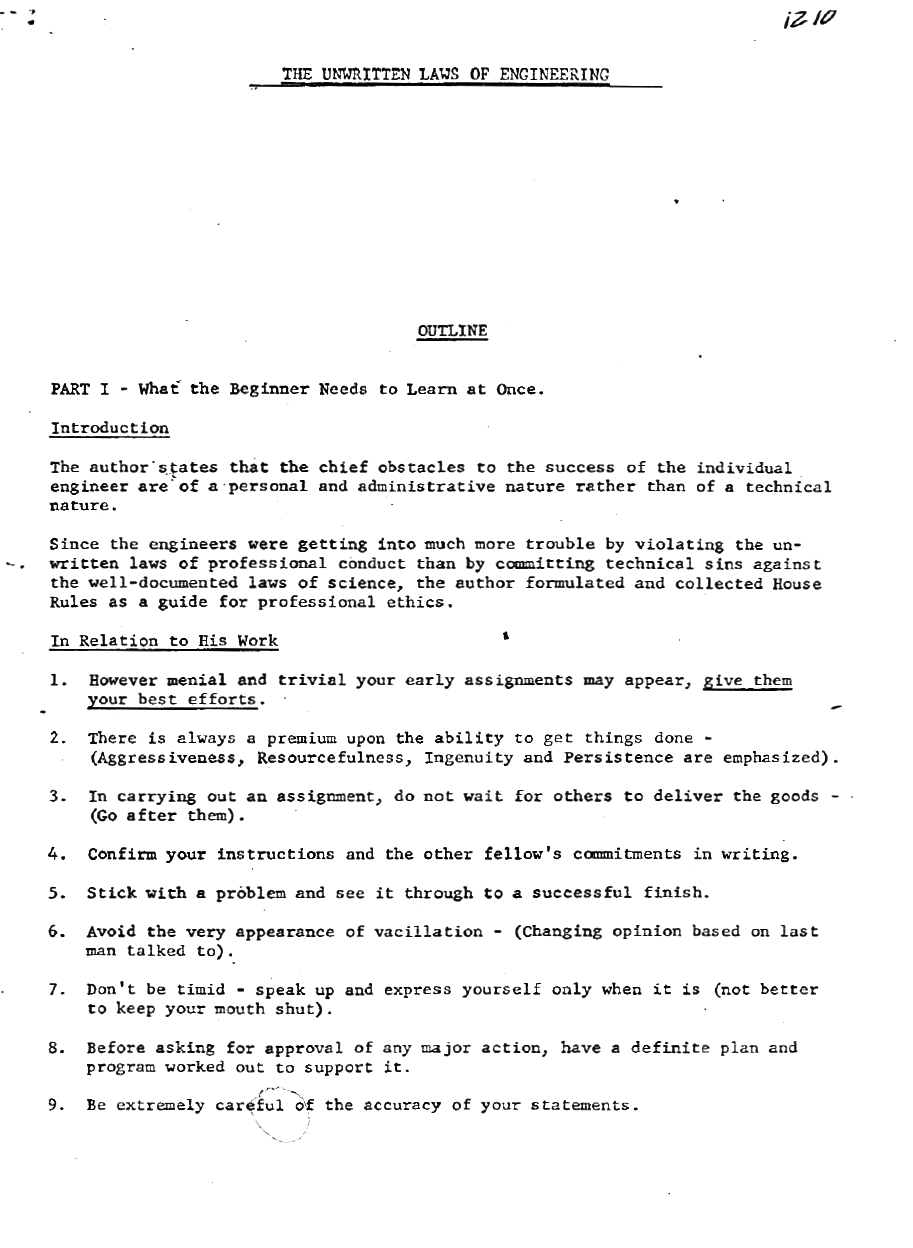So you’re smart and want to start a PhD ? Here are a few considerations and advices that might help you.
I won’t tell you whether it’s worth or not. I loved it, some hated it. Do don’t do it to earn an extra diploma, but because you are truly interested in science. And I mean it !
(“Notes On The PhD Degree», “Passing the baton: what I’ve learnt during my PhD»).
*
* *
The first thing you will have to do will be to build a coherent knowledge about your field, since :
The average Ph.D. thesis is nothing but a transference of bones from one graveyard to another. — J. Frank Dobie
and
Nothing can be so amusingly arrogant as a young man who has just discovered an old idea and thinks it is his own. — Sidney J. Harris
Few advices.
First, learn how to read a scientific article (“How to Read a Scientific Research Paper -a four-step guide for students and for faculty” by Ann McNeal is… a good read !).
When you begin to learn a new field, you will accept all the claims of the authors in the litterature. There is plenty bullshit, and you have to skim through, otherwise i) you will waste your time ii) you will feel stupid, since things are always more complicated than they really are.
Second, GO TO THE LIBRARY. This seems obvious, but many times students are lured by the vast immensity of the Internt, thinking they can find all the useful material they need there.
The strongest objections I would make is that the material is horribly scattered, while a good book manages to make things coherent and deep.
For obvious authorship rights, you won’t find these books on the internet (Pirates don’t care about litterature).
I’d rather read a harcover version (I also print all the articles I read, to annotate them- and have some kind of organic relation), but some websites are good sources for monographies : freebookspot and eKnigu for instance (I don’t know whether they are fully legal, but who knows?).
When you decide to experiment them, don’t forget that :
Anything worth doing, is worth doing right. —Hunter S Thompson
…what means that I at first you don’t succeed, try harder; if it’s not worth it, don’t ry it in the first place.
No results are perfect, but keep track of them; this is especially important for the moment when you will realize that “eh, there’s something here…”, which eventually will come later, while redacting articles or you dissertation.
When things start to work, work until you sleep : most of the time, conditions will have changed the next morning (humidity is a bitch, and motors break)
When analyzing the data, don’t forget that the data is yours. You can do whatever you want to it, not only standard processing; use your imagination ! Something also very important, and somhow related to data processing is data visualization. Think outside the box and try to find ways to make your results stand out, not only in front a crowd, but also to your eyes. I recommend reading “The Visual Display of Quantitative Information», by E. Tufte to get some insight.
Go to these, no matter what : these will improve you scientific litteracy and make you a better scientist. You will never have those again, while your experiment can wait.For extra useful advices, you can read that : “So long, and thanks for the Ph.D.!” by R. T. AzumaStarting a PhD program is sacerdotal on many aspects (don’t forget that you will attend seminars ;-).
This is why I want to give you some material- the unwritten code that you should follow to avoid bad things to happen.
The first, and most useful code are the Unwritten Laws of engineering :
The complete list of the unwritten laws of engineering is here.
In addition, you can also refer to the IEEE Code of Ethics, which I found quite inspirational when my former English teacher, Thierry Kakouridis, submitted it to us, young students.
PhD Comics gives a good depiction of what the grad student life looks like. Of course, it’s a bit caricatural, but the perks of research are there !
To have an idea of what awaits you next, you can have a look at the Upturned Microscope !
*
* *

